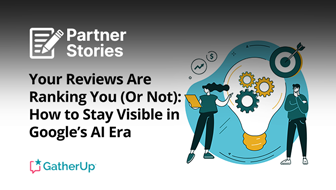There’s a lot of stress involved in owning a business – especially during times of crisis, like the current Coronavirus pandemic.
We all deal with stress differently, too – and our coping mechanisms can derail our businesses if we don’t keep them under control.
I’ve found personality assessment tools have helped me to understand how I manage stress.
They’ve also helped me to be more empathetic with staff and work more effectively with my co-founder Carrie Rose.
For most of this post, I’m going to dissect our personalities according to various tools – and what that’s taught us about how to structure our nearly 10-month-old SEO agency, Rise at Seven.
What Personality Profiling Tool Should I Use?
There are a number of personality assessment tools on the market, some more credible than others.
Most people are familiar with Meyers-Briggs.
DISC is one of the more popular assessment instruments and the one I’m most comfortable with (but I’ll talk through a few).
Worth mentioning: I’m in no way affiliated with DISC or anyone who sells it.
What Is DISC?
DISC is a (typically online) assessment consisting of multiple-choice questions.
Some variants include lists of loosely related words to be placed into order of preference.
These answers are turned into a report all about you and your personality.
DISC stands for:
- Dominance or Decisiveness.
- Influence or Interactivity.
- Steadiness or Stability.
- Conscientiousness or Caution.
These letters are used to make up your DISC personality types.
You might be a straight letter (D, for example) or a combination of a couple of these.
I’m a dS: What Does That Mean?
I used a DISC variant from Innermetrix called ADVanced Insights that gives a score out of 100 in each category.
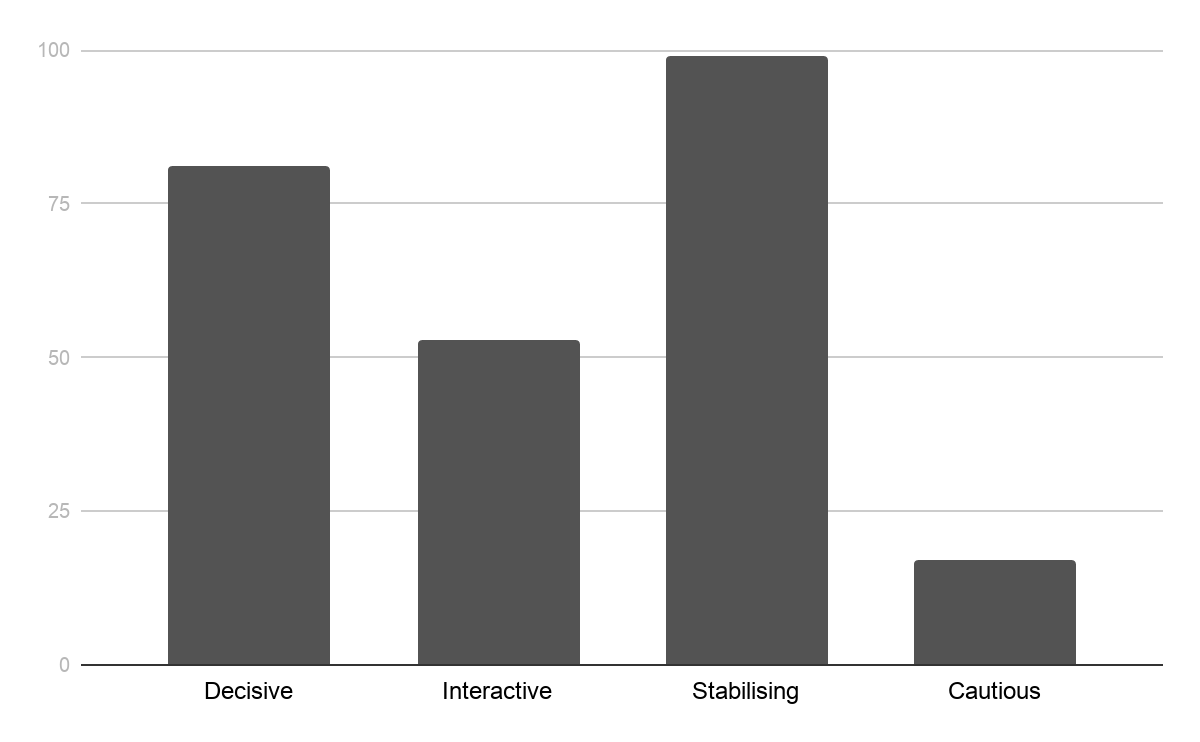
I’m very high Decisive (81/100) – not uncommon amongst business owners and directors.
I’m also off-the-charts Stabilizing (99/100) – not uncommon amongst SEO professionals, developers, and people who work in more technical disciplines.
It’s uncommon to find these two traits together though, it’s what we call a “personality conflict” (which already makes you feel great about your stress levels, right?).
If we were to play word associations with just these two scores, I’m simultaneously Forceful, Daring, Determined, Patient, Predictable, and Passive:
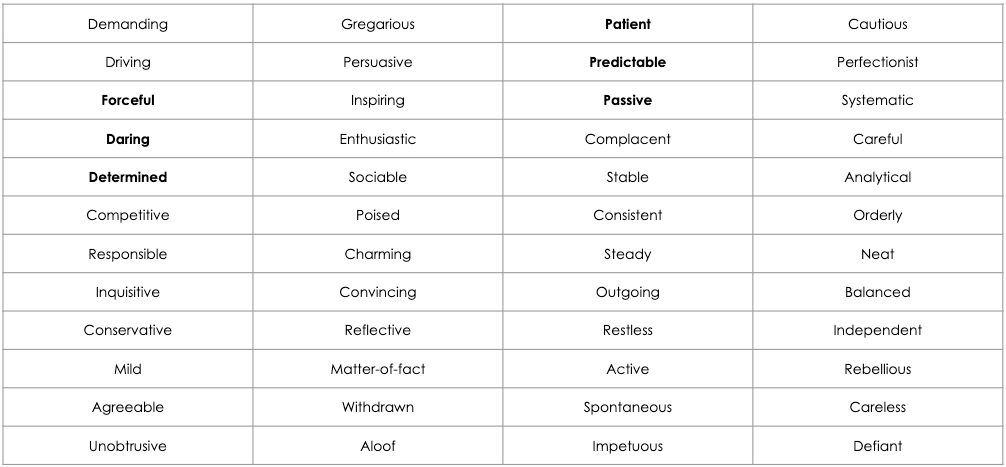 Word associations, for high to low scores under D, I, S and C.
Word associations, for high to low scores under D, I, S and C.These scores reflect my “natural” style: the way I tend to behave when I’m under pressure (which, when you own a business, can be pretty often).
My “adaptive” style – how I behave when I feel like I’m being watched, or how I want to behave – is pretty middle of the road:
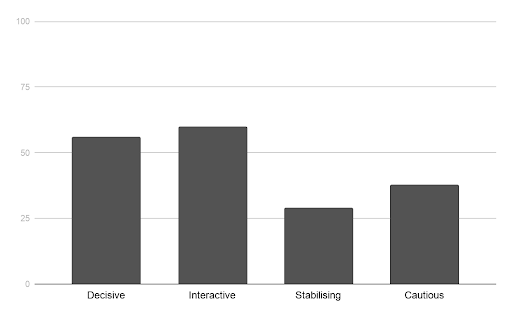
Understanding the difference between my natural and adaptive styles is key to understanding what causes me the most stress at work.
My natural and adaptive S traits, for example, are almost opposite ends of the spectrum:
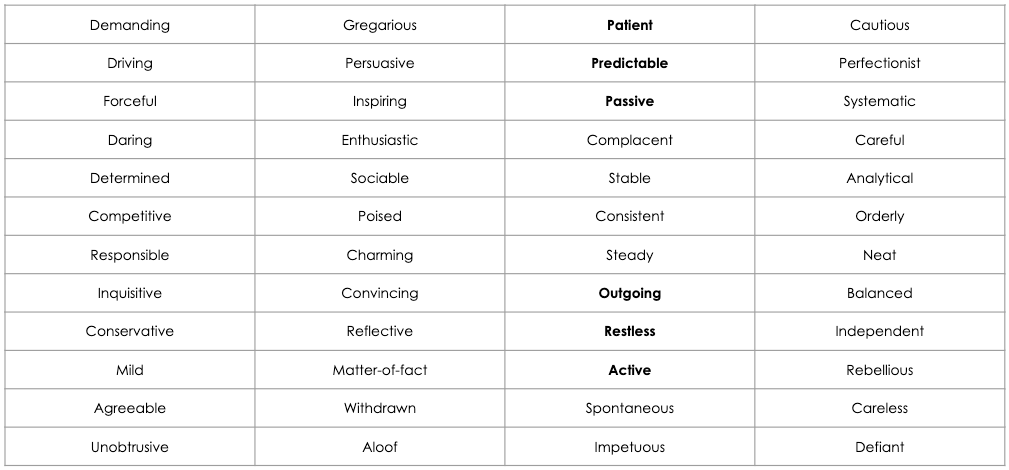
I try to be outgoing, but it doesn’t come naturally to me.
I want to be seen as spontaneous and make quick decisions…but when times are tough and crisis hits, I really want to see how it unfolds and maybe I can be guilty of reaching for my tried and tested playbook.
Keeping an extreme personality under check day after day comes with stresses of its own – it can be hard to appear outgoing every day when that’s isn’t who you are.
Not really understanding the reasons I had a tough day used to result in drinking in the evening as a way of switching off.
Now I know when I’m keeping my true self.
Understanding my tendencies was extremely helpful when the coronavirus pandemic hit.
I could question myself: am I waiting for something because I believe I’ll get more data on how the situation is going to unfold, or is it just my personality?
Most valuable of all though, it helped me to navigate the situation with my business partner.
Understanding Your Personality Can Help You Improve How You Work With Others
Most of the time, Carrie and I are pretty similar. Here are our adaptive profiles, for example:
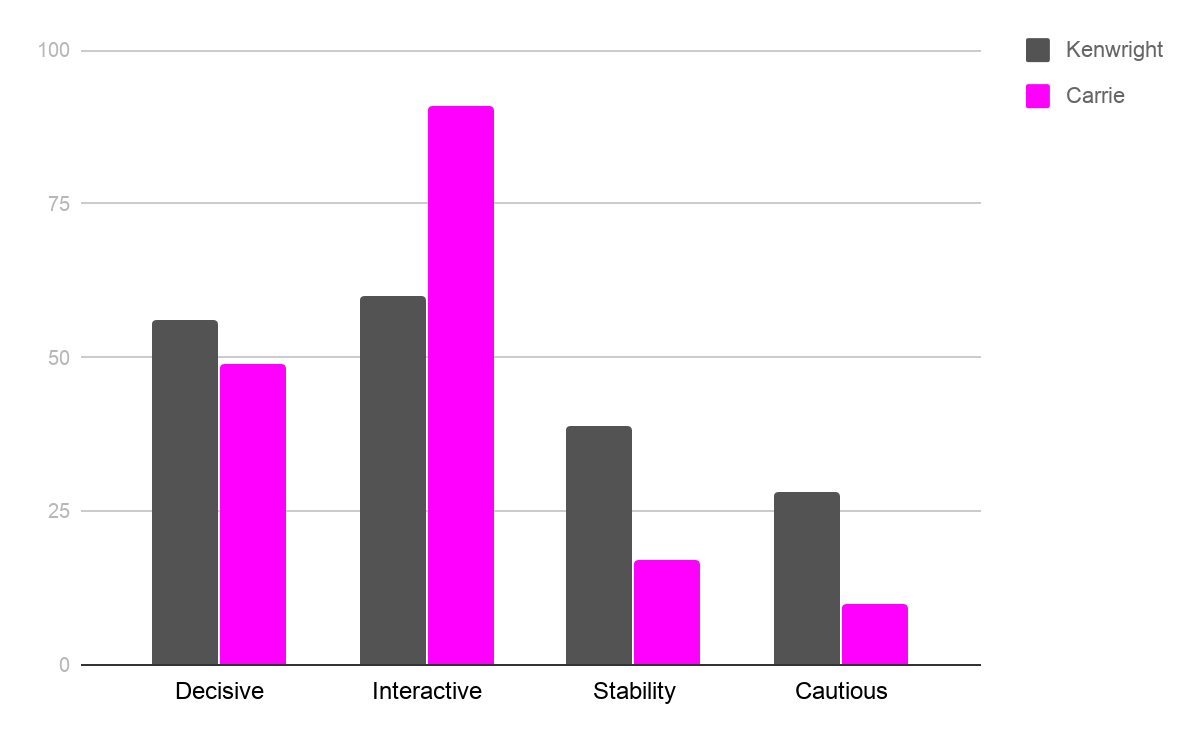
We’re both middle of the spectrum decisive, whereas Carrie makes more effort with people (high I), reads the room and pays less attention to process (low S) and just goes along with it (super low C).
…but in times of stress, our personalities clash in a big way. Here’s a comparison of our natural styles:
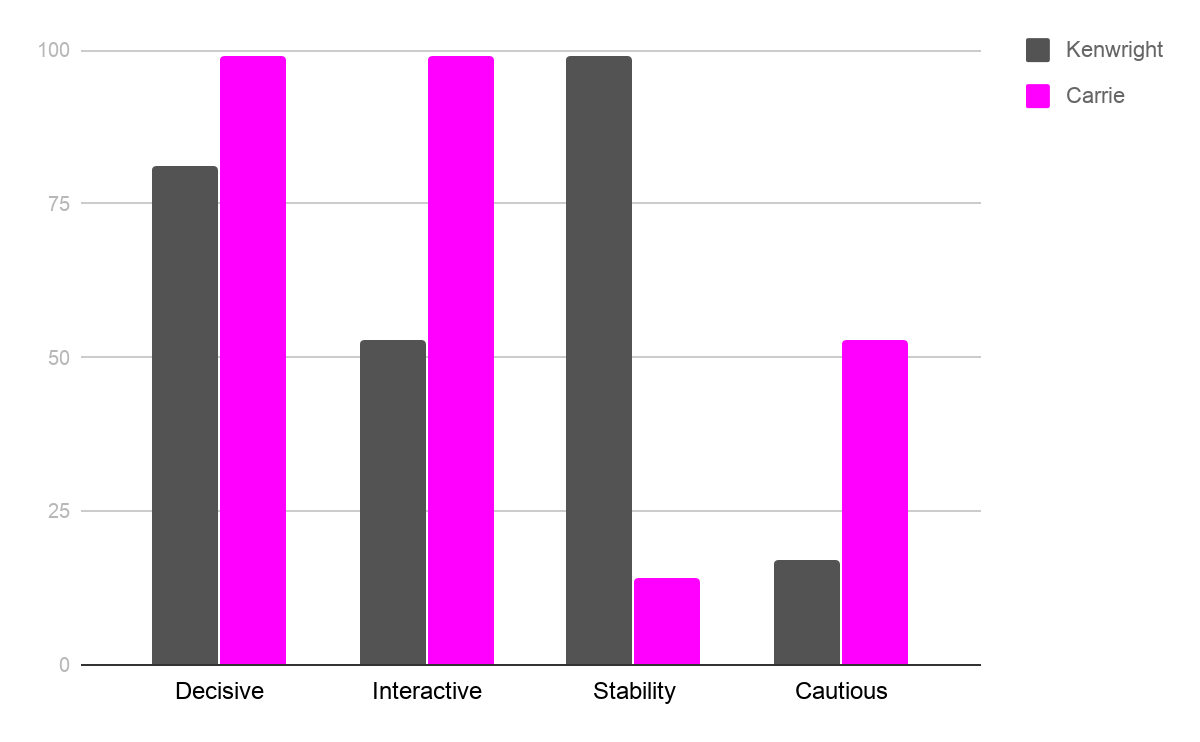
Carrie gets more cautious (a swing from 13 to 51 C) and is even less likely to follow process, so an unprecedented situation like this feels even more like the rule book should be thrown out of the window.
Like my natural tendency to stability (I’m more likely to follow the protocols and behave in a similar pattern under pressure), this natural tendency to caution is the thing that’s likely to cause Carrie the most stress.
The biggest problem for us is that we both become extremely decisive (very high D) – so we have to be on the same page.
When things are going wrong, I can aggressively want to keep the status quo, whereas Carrie may desperately want to reign everything back, cut costs, and shut the doors.
Just knowing this helps us to keep our business relationship smooth.
When we have a conversation, we know to ask ourselves:
- Have we made a decision?
- Do we agree on the decision we’ve just made?
- How will we know when we need to change our decision?
Likewise, when times are good, we should temper ourselves and ask if we should be more cautious at any point.
Our agency is 10 months old, for example, and we’ve hired 19 staff in that time, making the call as soon as the work is coming in.
It’s meant that we’ve been able to scale quickly, but it hasn’t given us a huge buffer for a crisis that we didn’t see coming.
Where to Start With Personality Profiling
Knowing your DISC profile might help you to make better decisions but, more likely, it’ll help you to understand why you’re making the decisions you are.
DISC assessments come in all shapes and often have a budget attached, but Crystal is a freemium assessment program that includes a DISC variant (and quite a lot of other useful tests).
We put every new starter through Crystal because it links together – everyone can see their colleagues’ scores – and can be a great conversation starter for people just getting to know each other.
More Resources:
- 20 Essential Skills for Digital Marketers
- 5 Search Marketing Skills That May Save Your Life
- Top 7 Ways to Become a Better Digital Marketer
Image Credits
All screenshots taken by author, April 2020





